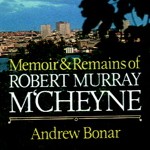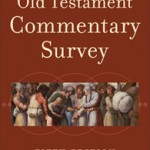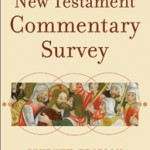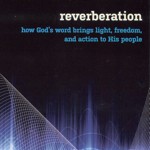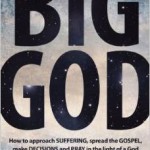Have you ever considered how the Bible is, in many ways, much like a vivid night sky?
Every chapter in God’s word, like stars in a night sky, shouts and shines forth the glory of God in Christ, but – like certain stars and constellations – some chapters do so with incredible luminosity. Psalm 119 is one such chapter that shines with peculiar power. The Germans used to call this psalm, “The Christian’s golden alphabet of the praise, love, power, and use of the Word of God.”
At 176 verses this psalm is the longest longest chapter in the Bible, more than twice as long as its nearest competitor. You could point to verse twenty-five as indicative of the psalmist’s heart and theme.
NOT A NEW THEME
119:25, “My soul clings to the dust; give me life according to your word!” And what amazing about this one verse is how it encapsulates a main theme we see from Genesis to Revelation: the connection between God’s word and life. God’s word bring life from the dust.
All through the Bible we see that when God gives life, He does so through the power of his word. In Genesis 1 we find God creating, giving life to all things, by speaking them into existence with his powerful word. Later on in Exodus 20 we find God, through His word, speaking the nation of Israel into existence. Then there is the stunning vision in Ezekiel 37 of God giving new life to his people after their exile in Babylon. The prophet sees bones lying in the dust and God tells him to speak. Ezekiel then says,
So I prophesied as I was commanded. And as I prophesied, there was a sound, and behold, a rattling, and the bones came together, bone to its bone . . . and the breath came into them, and they lived and stood on their feet, an exceedingly great army. (Ezekiel 37:7,10)
God’s word, spoken through Ezekiel, brings dead bones to life. The Old Testament is clear: God’s people receive life through God’s word.
We see the same thing in the New Testament. Indeed Scripture’s teaching about God’s life-giving Word finds its consummation in Jesus Christ, the incarnate Word. John writes at the beginning of his gospel,
In the beginning was the Word, and the Word was with God, and the Word was God. All things were made through him, and without him was not any thing made that was made. In him was life. (John 1:1,3-4)
In the Word was life! It is through Jesus Christ – the incarnate Word of God – that we are brought from death to life and “born again” by God’s power. Paul makes the same point in Romans 10: “Faith comes by hearing, and hearing by the word of Christ,” he says (Romans 10:17). And Hebrews 1 says, “he upholds the universe by the word of his power.” The Bible continually announces that God’s Word brings life to everything; that is a theme on which our soul is lifted from the dust of this world in which we live.
GOD’S WORD IS ENOUGH
Notice how prevalent this idea is in Psalm 119:
- 119:37 – “Give me life in your ways.”
- 19:50 – “Your promise gives me life.”
- 119:93 – “Your precepts . . . have given me life.”
- 119:107 – “Give me life, O Lord, according to your word!”
- 119:54 – “Give me life according to your promise!”
- 119:56 – “Give me life according to your rules.”
Psalm 119 reorients us to the primacy and life-giving power of God’s word. Here is life and life abundant! Why turn anywhere else?
How is it that God’s word can give us life? Notice the vital nuance we find in 119:2, “Blessed are those who keep his testimonies, who seek him with their whole heart.” Do you see it? 119:2 shows us that keeping God’s word is the same thing as seeking God. The psalmist doesn’t destructively separate God from His word. He knows that God’s word is an extension of Himself. To obey God’s word is to obey God. To hear God’s word is to hear God. These words are life-giving words because they are inextricably connected to the life-giving Creator of the whole universe.
I wonder what comes into mind when you think about God’s word. Tozer famously said, “What comes into our minds when we think about God is the most important thing about us.” Psalm 119 is telling us the same is true when we think about God’s word. Here is a trustworthy saying deserving of full acceptance: You can measure a person’s opinion of God by his or her opinion of God’s word. God’s word is an extension of God Himself, so your thoughts about it reveal your thoughts about Him. A person who loves God loves His word, and a person who rejects God rejects what God has said.
THE “ENOUGHNESS” SCRIPTURE
Here then is the first implication we as a church, and you individually, must see from Psalm 119: God’s word is enough. It has the power of life and so it is enough. We dare not be surprised that God’s people are regularly tempted to slide away from the the sufficiency – the “enoughness” – of God’s word. Understand dear church that the Serpent is desperate for you and us to believe it’s not enough. To tempt us to think life is found somewhere else – anywhere else! If we run away from the fountain of life we must know that we are actually into the desert of death. Is God’s word enough for you? Enough to give you life?
This post is adapted from my recent sermon on Psalm 119 entitled, “The Word of God.”






